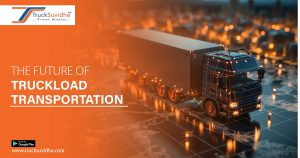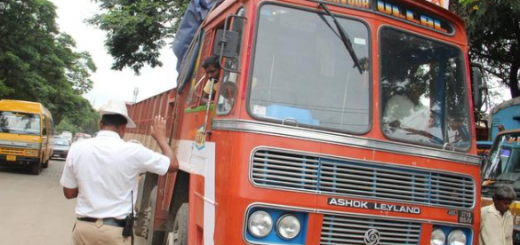THE FUTURE OF TRUCKLOAD TRANSPORTATION
The trucking business contributes significantly to the global economy. It has grown and evolved to satisfy the logistical requirements of diverse sectors. The truckload transportation industry utilised to improve its capabilities and make its employees more productive. However, as times change, industries rely more on technology to become smarter and more self-sufficient.
Truckload transportation companies encounter several challenges.
The following are some of the primary issues that have prompted the truckload transportation industry to make adjustments in their operations:
Concerns about Capacity
Several carriers have had difficulty throughout the epidemic, and many have laid off drivers owing to a lack of finances and orders from the market. However, the markets are thriving today, and the economy is getting back on track. This has sparked worries among shippers about their truckload capacity, which would be a difficulty for meeting customer needs.

Fuel
Global gasoline costs have soared, and their impact is being seen around the globe. Fuel prices, which are likely to grow in the future, are completely dependent on the transportation industry.. As a result, many businesses are seeking for methods to transition to more sustainable fuels that might be an inexpensive alternative to petrol and diesel.
Inadequate digitalization
Truckload firms have been dealing with issues such as missing cargo and stolen items. To reduce this loss, businesses are digitising the whole supply chain. They do not have access to cargo tracking systems that may assist them in preparing for unfavourable events. As a result, businesses are taking the initiative to adopt these digital innovations, which have been critical in addressing all of the key difficulties confronting the transportation sector.
The Future of Truckload Transportation
The advancement of numerous technology has made the truckload transportation industry smarter and more efficient. Let’s take a look at some of the dramatic innovations that are likely to shape the future of truckload transportation.
Autonomous vehicles
Autonomous cars are no longer the vehicles of the future. They have entered the market, and several transportation firms have begun to use them in their operations. Experts predict that global revenue from self-driving automobiles would reach 1.6 trillion dollars by 2030. This is greater than the total revenue of Toyota, Volkswagen, Ford, and General Motors in 2017.
Platooning technology
As the name indicates, platooning technology connects numerous autonomous vehicles digitally and physically to form a digital platoon. Naturally, platooning technology comes in useful when autonomous cars become prevalent in a location. This technology has the potential to alleviate the truck driver shortage. These truck networks may be remotely operated utilising supercomputers, reducing the overall manpower required in freight transportation.
Increasing transparency and visibility
Several truckload transportation companies are attempting to integrate sophisticated supply chain insights into their operations. The goal is to develop a towering perspective of all the interrelated processes in the logistics network. By strategically arranging shipping services between suppliers and consignees, all persons involved in logistics become a member of this ecosystem.
B2B service providers
Many B2B service providers have built a multi-modal platform that includes all players, from customs house agents and goods forwarders to consignees. Every step of the supply chain is gets documented by this one integrated platform, which is further backed by dynamic estimation of the arrival times of goods at places like docks and storage facilities. Because the platform allows everyone in the network to know where the shipment is, the concerned party may plan ahead of time to guarantee a smooth delivery.
Digitalization
Trucks and automobiles, like Uber’s transportation system, are rapidly linking to the Internet and smartphone applications as a mode of transportation. Shippers no longer need to rely on intermediaries to reserve trucks in their area thanks to smartphone applications. All that is necessary for the parties to interact directly is a technically driven, web-based, or mobile-based application adapted to their unique needs.
The system’s safety
Data can be quickly transmitted and simply across the Internet via cloud networks. Solutions for warehouse and logistics management are susceptible to cyber-attacks because of how simple it is to send data over the Internet. As a result, logistics systems and network administrators must maintain systems that are powerful, secure, and able to withstand any cyber-attack.
Transportation management system
An effective transport management system is necessary for obtaining the proper freight rates and tracking the consignment throughout the process. This technology also aids in the onboarding of Less Than Truckload (LTL) and Full Truckload (FTL) suppliers, the digital cataloguing of all freight activity paperwork, and the digitalization of driver procurement procedures.
Trucks are now outfitted with sophisticated GPS tracking systems that get supported by telematics. This keeps corporations informed of the exact real-time position of their cargo, and truckload companies use networks like this to follow their drivers on the road.
Conclusion
All of the technologies discussed above will contribute to a prosperous future for truckload transportation. They have assisted businesses in reducing transit time and making access to the required logistics safer and faster. Not every company understands truckload transportation and how to use services like these to their advantage.
Visit us – www.trucksuvidha.com




Recent Comments